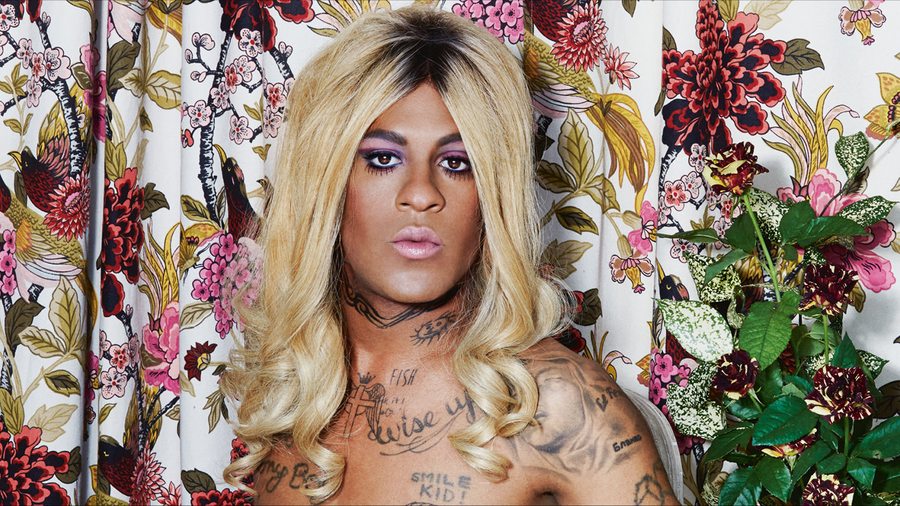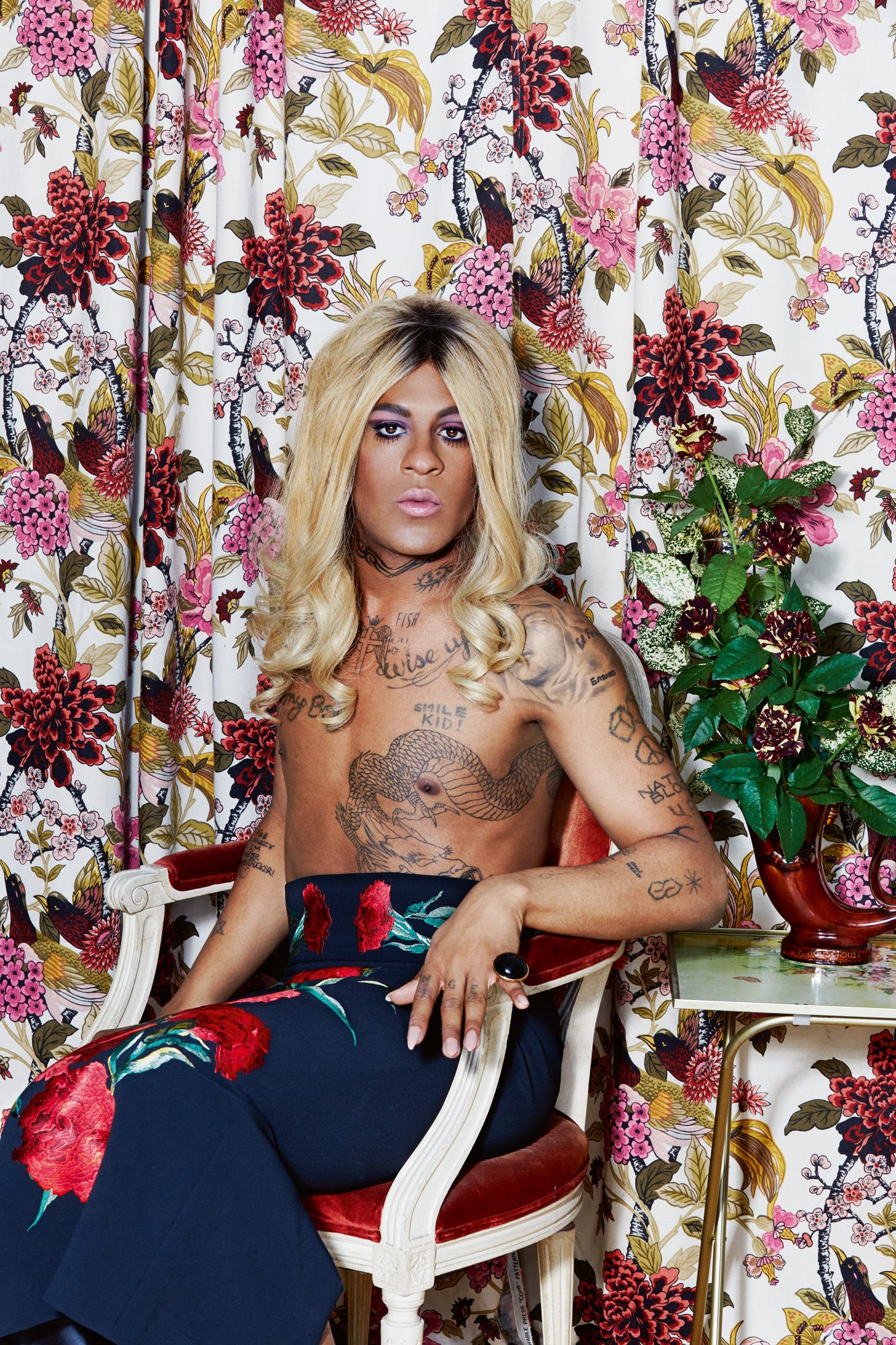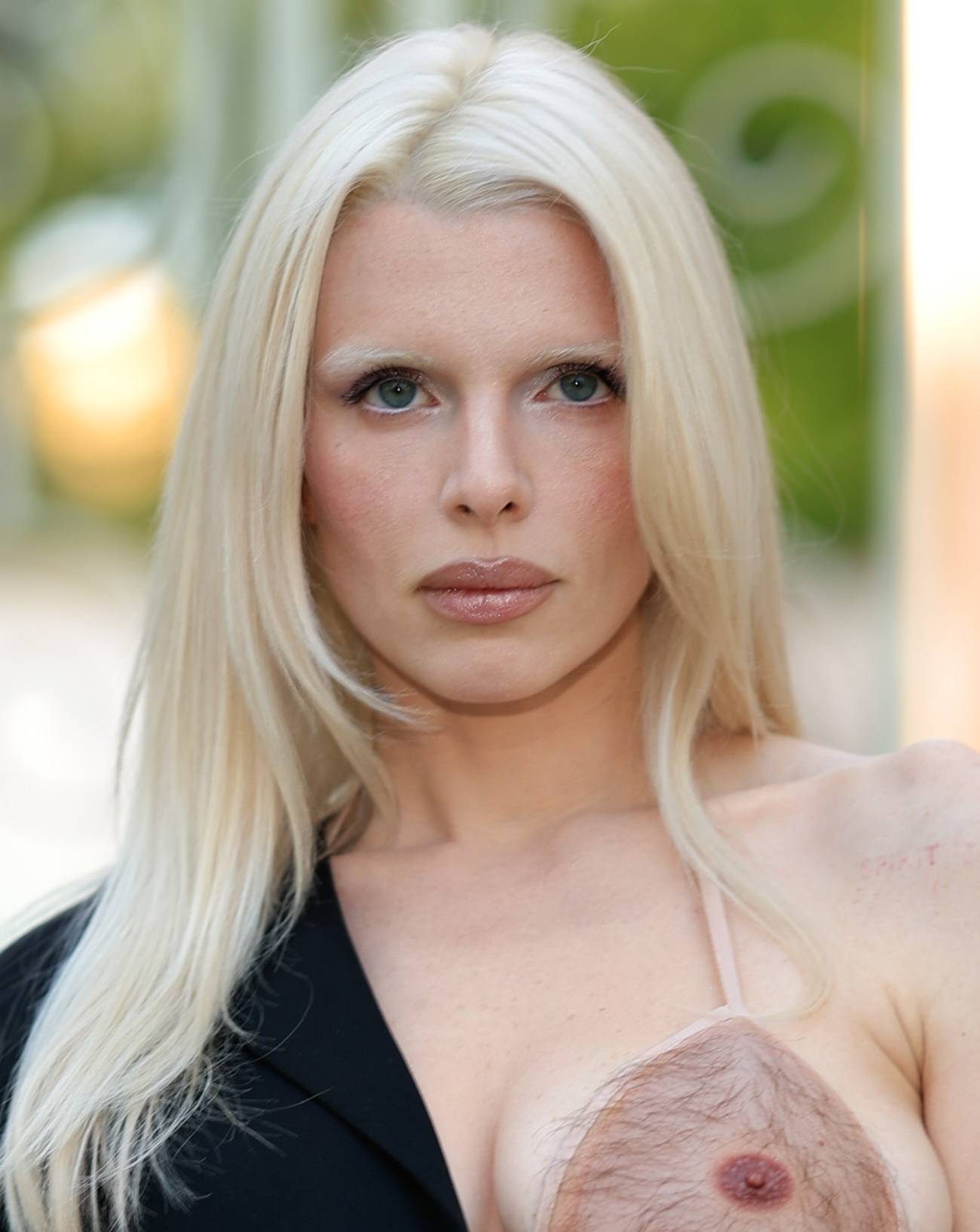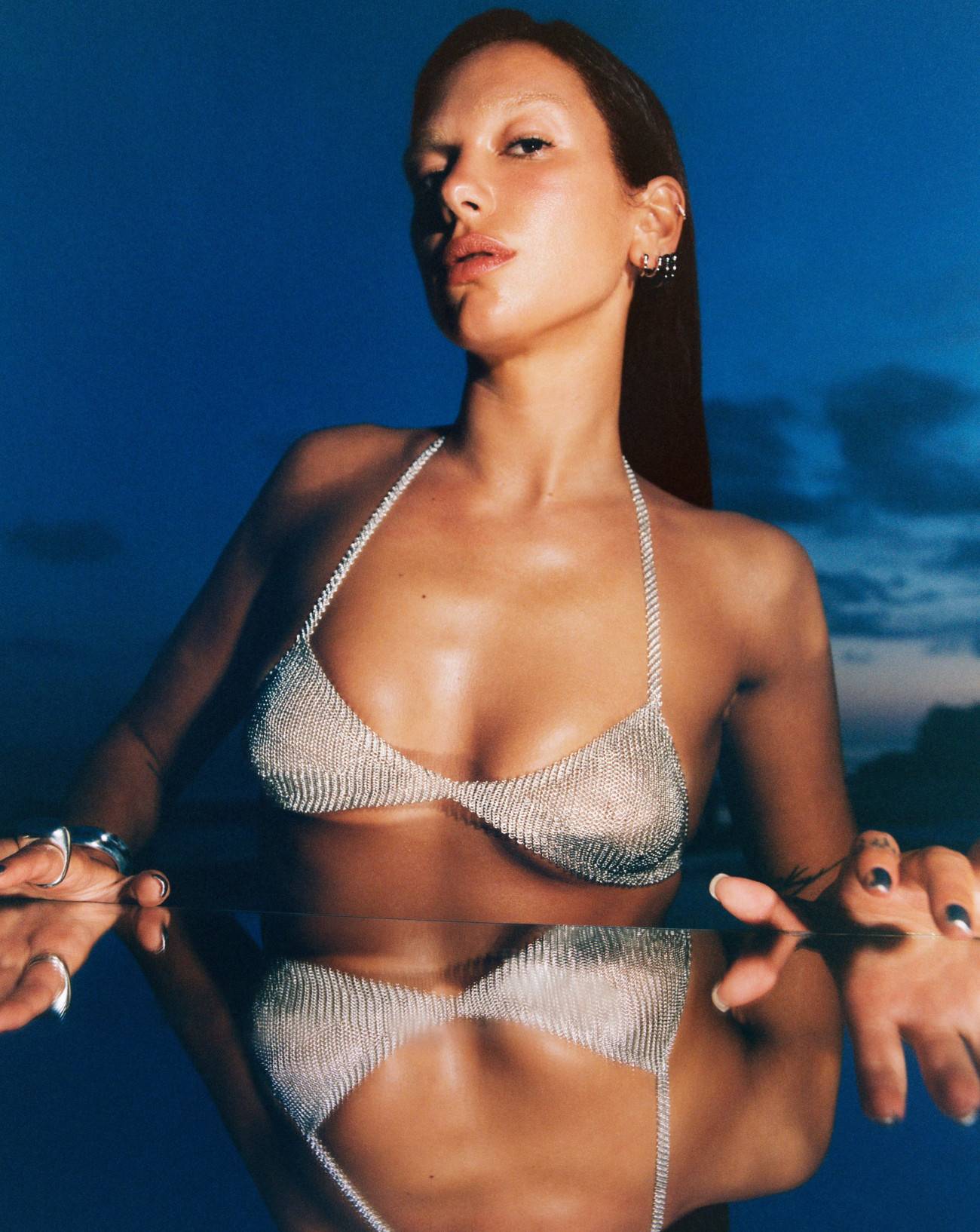Mykki Blanco was born in November 2012, appearing like the improbable orgiastic offspring of queer scenesters, hardcore hip-hop rappers, conceptual artists, punk performers and star electro D.J.s. All these ingredients, it would seem, fizzed and furiously oozed in the unbridled mind of Michael Quattelbaum Jr., triggering the birth of Blanco. For over two years now, coiffed in Mykki’s signature peroxide locks, Quattelbaum Jr. has been flamboyantly flaunting his rap persona both on stage and in videos. Wild and mutant, Mykki Blanco is both man and woman, queer performer and hip-hop M.C., united in an artist who draws inspiration as much from the provocative, gritty feminism of Peaches or Chicks on Speed as from Yoko Ono and Marcel Duchamp. This grinding gang-bang of influences constitutes not only Quattelbaum’s originality, but also his strength. Channelling all these different cultures with joyful disdain for boundaries and categories, Mykki Blanco is one of the most felicitous incarnations of the modern age, the freest of free radicals.
“I was raised between California and North Carolina,” confides Quattelbaum Jr. “My mother worked in the legal sector, and my father was an I.T. specialist… before he gave it all up to become a psychic.” For indeed, in Mykki Blanco’s America, everything is possible. “I was always taught to express my creativity,” continues Michael. “I wrote and drew with my family’s full encouragement. Then, as a teenager, my interest naturally shifted to theatre and afterwards to performance.” In the Quattelbaum family’s case, the traditional values of the American dream, of pushing one’s limits to self-made fulfilment, served less traditional ambitions: becoming a psychic for the father, and a performance artist for the son. Seen this way, Michael’s story sounds like a warped, contemporary rewriting of all the big themes in American culture. And indeed, a little later, he followed in the footsteps of another all-American legend, Holden Caulfield, the protagonist of The Catcher in the Rye. Just like Salinger’s hero, Michael ran away. He was just 16. Drifting for several months through the New York underground, he wasn’t looking for whores, like Holden, but rather drag queens and fags. “You have to remember that the image that was projected of gays and their culture 10 to 15 years ago had nothing to do with today. The categories were completely hermetic. Everything was black or white. During this first experience, then afterwards in Chicago, and again upon finally settling in New York, I discovered that being gay or queer didn’t have anything to do with the stereotypes propogated by society. That things were more complicated, more diverse and, above all, freer.”
“Masculinity is always perceived as the incarnation of strength and power. It’s a stereotype. Just as, in the same way, femininity is perceived as weakness. As a feminist, I’m fighting against this idea. Femininity is an incredibly powerful source of strength.”
It wouldn’t be long before Michael turned to performance, and to its corollary, music. He performed his verses at art-scene evenings, adding guitars and a drum – a punk group was born. It was in November 2012 that Mykki Blanco & the Mutant Angels first appeared on stage. “I wasn’t a drag-queen then and nothing has changed since. I’ve obviously always been inspired by drag-queen glamour and theatricality. I know John Waters and Divine. But what interested me about Mykki Blanco was the opportunity to take on a female identity, infusing it with streaks of punk and glam-rock. As time went by, my music inclined more towards hip-hop and electro, but retained its basic punk energy. Which seemed like an utterly fresh recipe, and suited my lifestyle too. I was exploring my sexuality on a daily basis. I’m transgender, but not transsexual, because I don’t physically change sex, but try to push the limits as far as they’ll go.” Women’s clothes and blonde wigs stand in counterpoint to his aggressively virile rap. “Masculinity is always perceived as the incarnation of strength and power. It’s a stereotype. Just as, in the same way, femininity is perceived as weakness. As a feminist, I’m fighting against this idea. Femininity is an incredibly powerful source of strength,” Michael explains.
A hybrid of genders, cultures and music, Mykki Blanco is the embodiment of an epoch in which the internet has dynamited traditional boundaries, particularly between the mainstream and the underground. “There is no more underground,” Michael exclaims, “from the moment everything is available online, publicly up-for-grabs, ripe for reinterpretation and remixing. You have direct access to the latest offerings from the Chicago techno scene … and then you notice that teenagers in Scandinavia have taken that inspiration and are doing something completely new with it.” Michael also understood, like big brands before him, that the best way to insinuate one’s way into the public consciousness is to be everywhere at once, all the time. With Mykki Blanco, this gives rise to a kind of creative going viral that bursts forth and propogates itself via his videos, internet clips and crazy live performances. In barely two years, Mykki has appeared all around the globe, in a reading at New York’s Opening Ceremony, a string of internet-published mixtapes, a dozen YouTube videos, not to mention an advertising campaign for Iceberg and an album, both of which are scheduled for release in 2015…
Check out High School Never Ends, Mykki Blanco and Woodkid’s collaboration.












